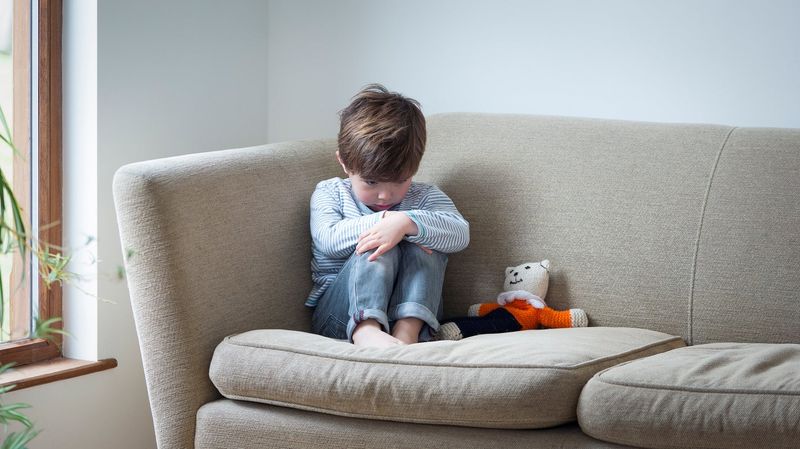17 Parenting Mistakes That Can Create Resentful Adults
Parenting is a journey filled with love, challenges, and learning experiences. While most parents strive to do their best, certain habits can unknowingly lead to long-term emotional effects on their children.
These aren’t about being a “bad parent” but rather understanding the nuances that can make a difference in a child’s life. This post explores 17 common parenting mistakes that, if left unchecked, may contribute to developing resentment in adulthood.
By becoming aware of these behaviors, parents can foster healthier relationships and emotional well-being in their children.
1. Prioritizing performance over connection

Pushing children to always aim for the top can overshadow the importance of emotional connection. When a child’s value seems tied to achievements, they may feel inadequate if they fail to meet expectations. This pressure can lead to anxiety and a sense of isolation.
Focusing too heavily on performance can erode the parent-child bond, leaving children feeling misunderstood. Encourage children to pursue their passions, emphasizing their intrinsic worth. Celebrate efforts and progress rather than just outcomes. By prioritizing emotional connection, parents can nurture a sense of security and belonging that extends beyond external achievements.
2. Dismissing their emotions as dramatic

Emotions can run high during childhood and adolescence, a time when feelings are as intense as they are real. When parents dismiss these emotions as mere drama, it invalidates the child’s experience. This can create an environment where children feel they must hide their true feelings, leading to emotional suppression. It’s essential to offer a listening ear and validation.
By acknowledging their emotions, parents teach children emotional intelligence. This understanding paves the way for healthier relationships and self-awareness in adulthood. Encouraging open communication fosters trust and emotional resilience.
3. Making love feel conditional on behavior

Every child yearns for unconditional love, a foundation for confidence and security. When affection is tied to behavior, children may internalize that they are only lovable when behaving a certain way. This perception can lead to feelings of inadequacy and anxiety about meeting expectations.
Instead, parents should ensure children know they are loved regardless of their actions. Providing consistent support helps children develop a stable sense of self-worth. By separating love from discipline, parents foster a nurturing environment where children feel safe and valued.
4. Using guilt to control decisions

Guilt can be a powerful motivator, but its misuse as a tool for control can harm a child’s development. When parents leverage guilt, children may feel trapped in a cycle of obligation, leading to resentment. This method can stifle a child’s ability to make independent choices, causing long-term emotional struggles.
Encouraging open dialogue and respecting choices fosters autonomy and self-esteem. Parents should guide rather than guilt, teaching decision-making skills that empower children to think for themselves. Acknowledging their capability promotes growth and confidence.
5. Expecting perfection and shaming failure

The pursuit of perfection can be a double-edged sword. While high standards can motivate, unrealistic expectations often lead to feelings of inadequacy and fear of failure. When parents express disappointment, it can deeply impact a child’s self-esteem. Mistakes are vital learning opportunities, and children need space to grow without fear of shame.
By embracing imperfections, parents teach resilience and self-compassion. Celebrating effort over perfection fosters a growth mindset, encouraging children to try new things without fear of judgment. This nurturing approach builds confidence and curiosity.
6. Using “Because I said so” as a default

Curiosity is a child’s natural inclination, a driving force for learning and understanding the world around them. “Because I said so” can stifle this curiosity, leaving children feeling powerless and unheard. It teaches compliance over critical thinking, limiting a child’s ability to question and explore.
Encouraging questions and providing explanations fosters a love for learning and respect for authority. By engaging in meaningful conversations, parents guide children through reasoning and understanding, laying a foundation for effective communication and problem-solving skills.
7. Not allowing them to express anger safely

Anger, like any emotion, needs a healthy outlet. Suppressing it may lead to unresolved issues manifesting as resentment or aggression later in life. When children are reprimanded for expressing anger, they may learn to internalize rather than articulate their feelings. Parents should guide children in understanding and expressing emotions constructively.
Creating a safe space for emotional expression builds emotional intelligence and self-awareness. By validating their feelings and offering solutions, parents teach children to navigate complex emotions, fostering empathy and emotional resilience.
8. Comparing them to siblings or other kids

Comparison can be a thief of joy, especially when it comes to sibling dynamics. When parents compare children, it can sow seeds of rivalry and bitterness. Each child is unique, with their talents and challenges. Highlighting differences can undermine self-worth and build resentment between siblings.
Instead of comparing, celebrate each child’s individuality and achievements. By recognizing their distinct qualities, parents encourage self-confidence and mutual respect. This approach cultivates a supportive family environment where all members feel valued and understood.
9. Overprotecting to the point of stunting growth

Parental protection is instinctive, yet overprotection can hinder a child’s growth and independence. Shielding children from every challenge may prevent them from developing problem-solving skills and self-reliance. While intentions are to keep children safe, they might miss opportunities to build resilience.
Encouraging calculated risks and allowing natural consequences can teach valuable life lessons. Parents should strive for a balance, offering guidance while allowing freedom. This approach fosters confidence and the ability to navigate challenges, essential skills for adulthood.
10. Not apologizing when you mess up

Mistakes are part of parenting, and acknowledging them teaches children humility and accountability. When parents fail to apologize, it can create a power imbalance, leaving children feeling invalidated. Modeling an apology demonstrates that everyone is fallible, and it’s okay to make amends.
This practice fosters mutual respect and understanding. Teaching children the value of apologies cultivates empathy and compassion. By admitting errors, parents show strength in vulnerability, encouraging children to be open about their own mistakes and learn from them. This nurtures a trusting relationship.
11. Speaking for them instead of listening

Children have unique voices that deserve to be heard. When parents speak for them, it can stifle self-expression and independence. Listening actively validates their thoughts and feelings, building self-worth and confidence. Encouraging self-advocacy teaches children to articulate their needs and opinions effectively.
Parents should create an open dialogue, allowing children to share their perspectives without interruption. By fostering a listening environment, parents empower children to become confident communicators and critical thinkers. This practice strengthens the parent-child relationship through mutual respect.
12. Ignoring mental health in favor of discipline

Mental health is crucial for overall well-being, yet it is often overlooked in favor of discipline. When parents prioritize correction over understanding, it can exacerbate underlying issues, leaving children feeling misunderstood. Recognizing mental health needs and providing support can prevent long-term emotional struggles.
Open conversations about feelings and concerns encourage a healthy expression of emotions. Parents should balance discipline with empathy, understanding that mental health is as important as physical health. This approach fosters a nurturing environment where children feel supported and valued.
13. Mocking their interests or minimizing their dreams

Every dream begins with a spark of interest. When parents mock or belittle these interests, it can extinguish a child’s enthusiasm and confidence. Dismissing their passions creates a barrier to self-discovery and growth. Supporting children’s interests, no matter how trivial they may seem, fosters creativity and resilience.
By taking their dreams seriously, parents encourage exploration and ambition. This support builds a foundation for lifelong learning and achievement. Children thrive when their passions are nurtured, leading to a fulfilling and confident adulthood.
14. Confiding in them about adult problems

Children are not equipped to handle adult issues, and involving them can lead to anxiety and confusion. When parents share their problems, it can create a role reversal, burdening children with undue stress. Children need to feel secure in their environment, free from adult concerns. Parents should seek support from appropriate sources, maintaining boundaries that protect children’s emotional well-being.
Encouraging open communication about age-appropriate topics fosters a supportive environment. This approach allows children to enjoy their childhood, growing into well-adjusted adults without unnecessary burdens.
15. Using sarcasm as discipline

Sarcasm can be a subtle form of communication, but in discipline, it can undermine a child’s self-esteem and trust. Children may struggle to understand sarcasm, perceiving it as mockery or criticism. This approach can create confusion and resentment, damaging the parent-child relationship.
Effective discipline should be clear and constructive, guiding children with empathy and respect. By avoiding sarcasm, parents foster an environment of trust and understanding. This practice encourages open communication and mutual respect, essential for healthy emotional development and a harmonious family dynamic.
16. Shaming them in front of others

Public shaming can have a lasting impact on a child’s self-esteem and confidence. When parents discipline in front of others, it can cause humiliation and resentment. Children may learn to fear judgment rather than understand their actions, leading to anxiety and withdrawal.
Effective discipline should be private and respectful, focusing on teaching rather than shaming. By addressing issues calmly and away from prying eyes, parents show respect for their child’s dignity. This approach fosters a trusting relationship, where children feel safe to learn from their mistakes without fear of public ridicule.
17. Being emotionally unavailable—even if physically present

Physical presence doesn’t always equate to emotional availability. When parents are preoccupied, children might feel neglected, impacting their emotional development. Quality time with undivided attention strengthens the parent-child bond. Being emotionally present means engaging with children, listening, and participating in their activities.
This connection builds trust and a sense of security, essential for healthy emotional growth. Parents should prioritize moments of connection, setting aside distractions to focus on their children. By being present, they nurture a supportive environment where children feel valued and understood.







